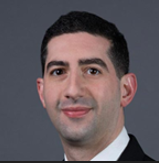Dr Zachary Solomon: Understanding Cardiothoracic Surgical Procedures
Dr Zachary Solomon: Understanding Cardiothoracic Surgical Procedures
Blog Article

Cardiothoracic surgery just like these done by Dr Zachary Solomon happens to be at the front of medical improvements, mixing precision, talent, and technology to deal with conditions of one's heart, lungs, esophagus, and different organs in the thorax. Over the past several decades, that field has observed revolutionary inventions and methods which have dramatically increased individual outcomes, recovery occasions, and over all quality of life, in accordance with Doctor Zachary Solomon.
The Development of Cardiothoracic Surgery
Cardiothoracic surgery has come a considerable ways from their early days. The initial successful center function, conducted in the late 19th century, set the foundation for an growing niche noted by quick advances. By the mid-20th century, the development of the heart-lung machine allowed surgeons to do complex open-heart procedures. Today, the control keeps growing with ongoing research and technological innovations.
Minimally Invasive Surgery
One of the very revolutionary breakthroughs in cardiothoracic surgery could be the introduction of minimally invasive techniques. These techniques are often conducted through small incisions, lowering injury to the human body and marketing faster recovery. Some key minimally intrusive practices include:
• Robotic-Assisted Surgery
• Video-Assisted Thoracoscopic Surgery (VATS
• Transcatheter Aortic Device Replacement (TAVR
Image-Guided and Computer-Assisted Surgery
Advanced imaging technologies and computer-assisted systems have somewhat improved the detail and security of cardiothoracic procedures. Innovations in this region contain:
Increased Recovery Standards
Breakthroughs in perioperative care have led to the growth of Improved Recovery After Surgery (ERAS) protocols, which try to enhance preoperative, intraoperative, and postoperative treatment to boost recovery.
Potential Recommendations
The future of cardiothoracic surgery is encouraging, with continuous research in to:
• Base Mobile Treatment: Exploring the potential of stem cells to correct and regenerate broken center tissues.
• Artificial Intelligence (AI): AI-driven analytics may guide in examination, operative planning, and outcome prediction, resulting in more personalized and efficient treatments.
• Nanotechnology: The application form of nanoparticles for targeted drug supply and minimally intrusive treatment options.
Realization
Cardiothoracic surgeons like Dr Zachary Solomon Philadelphia remains to push the boundaries of what's probable in medicine. With the ongoing progress of revolutionary techniques and systems, individuals can look forward to better techniques, smaller recoveries, and greater overall outcomes. The relentless pursuit of excellence in that field underscores the commitment to increasing the standard of living for individuals with cardiothoracic conditions.
Report this page